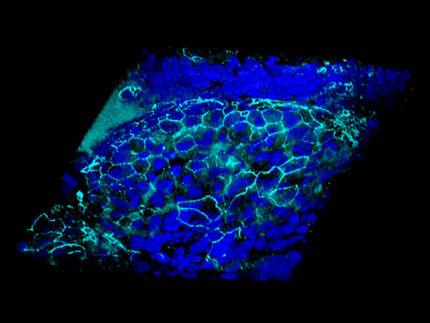Exome sequencing of health condition extremes can reveal susceptibility genes
DNA from cystic fibrosis patients with and without chronic infections points to unsuspected mutation
Comparing the DNA from patients at the best and worst extremes of a health condition can reveal genes for resistance and susceptibly. This approach discovered rare variations in the DCTN4 gene among cystic fibrosis patients most prone to early, chronic airway infections.
The DCTN4 gene codes for dynactin 4. This protein is a component of a molecular motor that moves trouble-making microbes along a cellular conveyer belt into miniscule chemical vats, called lysosomes, for annihilation.
This study, led by the University of Washington, is part of the National Heart Lung and Blood Institute GO Exome Sequencing Project and its Lung GO, both major National Institutes of Health chronic disease research efforts.
Similar "testing the extremes" strategies may have important applications in uncovering genetic factors behind other more common, traits, such as healthy and unhealthy hearts. The results of the cystic fibrosis infection susceptibility study appear in Nature Genetics.
The infection in question was Pseudomonas aeruginosa, an opportunistic soil bacterium that commonly infects the lungs of people with cystic fibrosis and other airway-clogging disorders. The bacteria can unite into a slithery, hard-to-treat biofilm that hampers breathing and harms lung tissue. Chronic infections are linked to poor lung function and shorter lives among cystic fibrosis patients. These bacteria rarely attack people with normal lungs and well-functioning immune systems.
In the study, these rare variations in DCTN4 did not appear in any of the cystic fibrosis patients who were the most resistant to Pseudomonas infection. The study subjects most susceptible to early, chronic infection had at least one DCTN4 missense variant. A missense variant produces a protein that likely can't function properly.
Most read news
Other news from the department science

Get the life science industry in your inbox
By submitting this form you agree that LUMITOS AG will send you the newsletter(s) selected above by email. Your data will not be passed on to third parties. Your data will be stored and processed in accordance with our data protection regulations. LUMITOS may contact you by email for the purpose of advertising or market and opinion surveys. You can revoke your consent at any time without giving reasons to LUMITOS AG, Ernst-Augustin-Str. 2, 12489 Berlin, Germany or by e-mail at revoke@lumitos.com with effect for the future. In addition, each email contains a link to unsubscribe from the corresponding newsletter.





















































